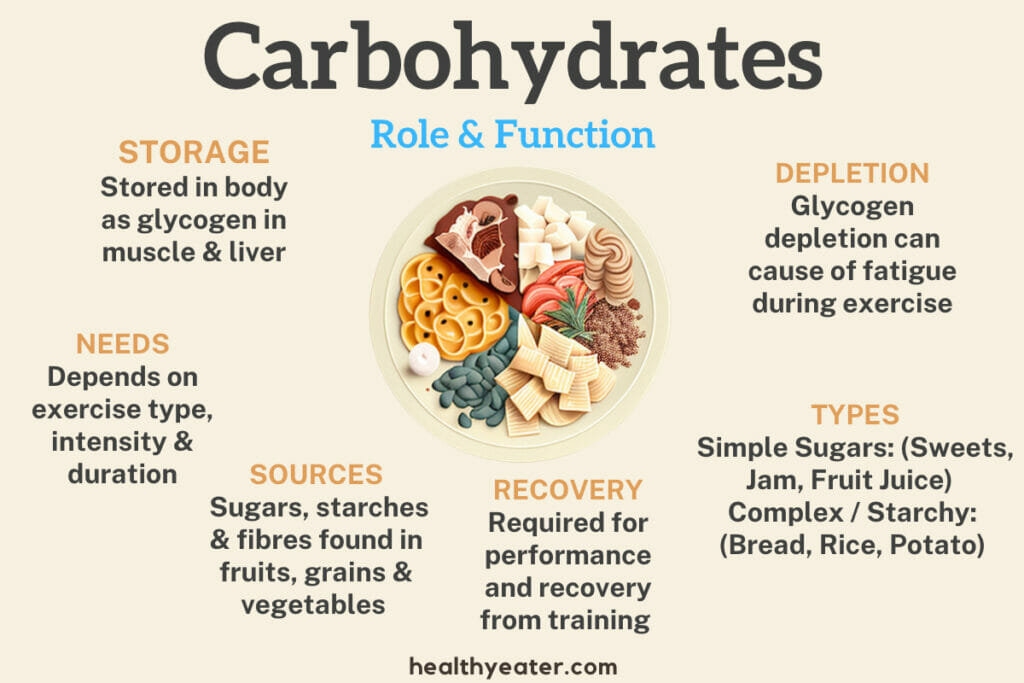The Role of Carbohydrates in Energy Metabolism
Carbohydrates are a vital macronutrient that plays a critical role in energy metabolism. They serve as the primary source of energy for the brain and muscles, providing the necessary fuel for physical and cognitive functions. When carbohydrates are consumed, they are broken down into glucose, which is then absorbed into the bloodstream and transported to cells throughout the body. This process triggers the release of insulin, a hormone produced by the pancreas that helps regulate blood sugar levels. However, increased insulin production can also lead to feelings of sleepiness, which is why consuming large amounts of carbohydrates, particularly simple carbohydrates, can result in a sudden spike in blood sugar followed by a crash, leaving individuals feeling lethargic and fatigued.
How Different Types of Carbohydrates Affect Energy Levels
Carbohydrates come in two main forms: simple and complex. Simple carbohydrates, also known as simple sugars, are found in foods such as sweets, fruit, and white bread. These types of carbohydrates are quickly absorbed by the body, leading to a rapid spike in blood sugar and a corresponding surge in insulin production. This can result in a burst of energy, followed by a crash that leaves individuals feeling tired and sluggish. In contrast, complex carbohydrates, which are found in foods such as whole grains, vegetables, and legumes, are absorbed more slowly by the body. This results in a more stable blood sugar level and a sustained release of energy over a longer period of time. Therefore, consuming large amounts of simple carbohydrates, particularly in the form of sweets and other sugary snacks, can contribute to feelings of sleepiness and fatigue.
The Impact of Meal Timing on Carbohydrate-Induced Somnolence
The timing of carbohydrate consumption can have a significant impact on feelings of sleepiness. Consuming carbohydrates close to bedtime can lead to a spike in insulin production, which can trigger feelings of drowsiness and contribute to disturbed sleep patterns. This practice, known as “carb-loading,” can result in a disrupted sleep cycle and daytime fatigue. Therefore, it is recommended to consume the majority of carbohydrate intake earlier in the day and to balance carbohydrate intake with other macronutrients, such as protein and fiber, to minimize the impact on sleep patterns. Additionally, avoiding large meals close to bedtime can help promote better sleep quality and reduce the risk of carbohydrate-induced somnolence.
Strategies for Minimizing Carbohydrate-Induced Somnolence
Managing carbohydrate-induced sleepiness can be achieved through a few simple strategies. Balancing carbohydrate intake with protein and fiber can help slow down the absorption of glucose and prevent a rapid spike in insulin production. Choosing complex carbohydrates, such as whole grains, vegetables, and legumes, over simple ones, such as sweets and white bread, can also help maintain stable energy levels and reduce the risk of sleepiness. Additionally, avoiding large meals close to bedtime can help promote better sleep quality and reduce the risk of carbohydrate-induced somnolence. By implementing these strategies, individuals can optimize their energy levels and sleep quality, while still enjoying the benefits of carbohydrate intake.
The Role of Individual Differences in Carbohydrate Metabolism
The degree to which carbohydrates cause sleepiness can vary significantly from person to person, due to individual differences in carbohydrate metabolism. Genetics, gut microbiota, and insulin sensitivity can all play a role in an individual’s response to carbohydrate intake. For example, individuals with a genetic predisposition to insulin resistance may be more susceptible to carbohydrate-induced sleepiness, as their bodies may produce more insulin in response to carbohydrate intake. Similarly, individuals with an imbalance in their gut microbiota may experience more pronounced fluctuations in blood sugar levels after consuming carbohydrates, leading to feelings of sleepiness. Therefore, it is important for individuals to pay attention to their own bodies and to experiment with different strategies for balancing carbohydrate intake to find what works best for them.
Carbohydrate Restriction and Sleep Quality
The relationship between carbohydrate intake and sleep quality is complex and multifaceted. While consuming carbohydrates can lead to increased insulin production and feelings of sleepiness, carbohydrate restriction may also have an impact on sleep duration and efficiency. Research suggests that low-carb diets may improve sleep quality, as they can help regulate blood sugar levels and reduce inflammation. However, it is important to note that carbohydrate restriction can also have potential drawbacks, such as decreased athletic performance and increased risk of nutrient deficiencies. Therefore, individuals who are considering restricting their carbohydrate intake should consult with a healthcare professional to ensure that they are meeting their nutritional needs and maintaining optimal energy levels.
Conclusion: Balancing Carbohydrate Intake for Optimal Energy and Sleep
In conclusion, carbohydrates play a critical role in energy metabolism and can significantly impact sleep patterns and energy levels. Consuming simple carbohydrates, such as those found in sweets and white bread, can lead to a rapid spike in blood sugar followed by a crash, which can contribute to feelings of sleepiness. On the other hand, complex carbohydrates, such as those found in whole grains and vegetables, can provide sustained energy and help regulate blood sugar levels. Additionally, individual differences in carbohydrate metabolism, such as genetics, gut microbiota, and insulin sensitivity, can influence the degree to which carbohydrates cause sleepiness. To optimize energy and sleep, it is important to balance carbohydrate intake with other macronutrients, choose complex carbohydrates over simple ones, and pay attention to meal timing. By experimenting with different strategies, individuals can find what works best for them and improve their overall health and well-being.







